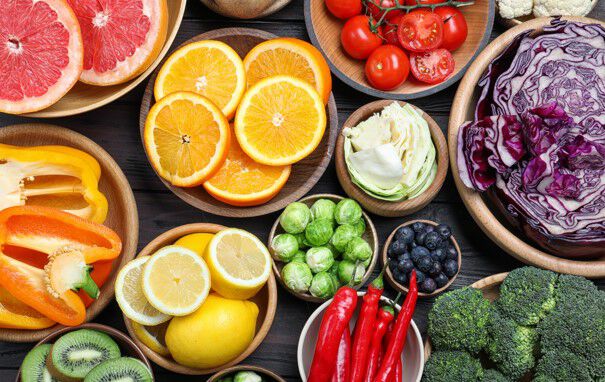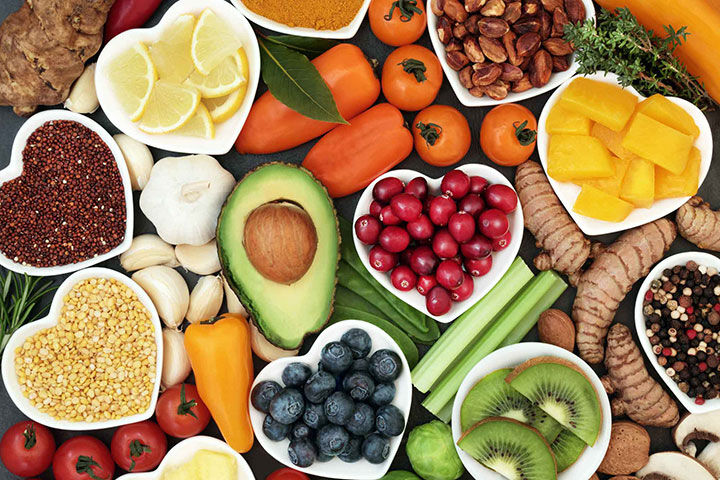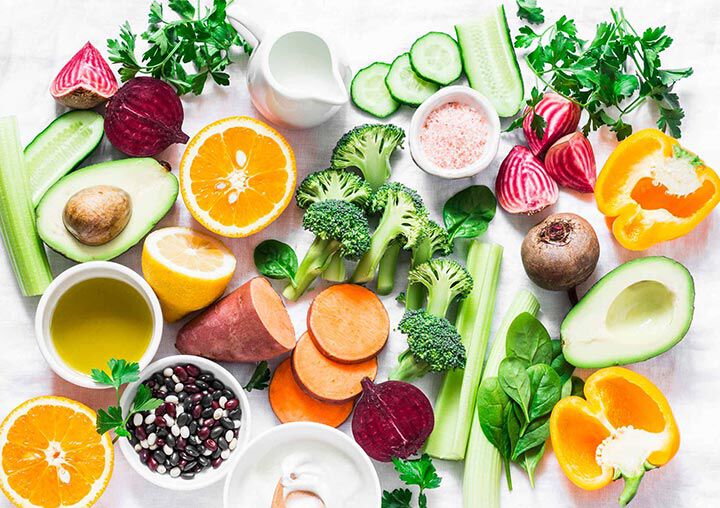Immune Support
Vitamin C Benefits: The Wonders of this Essential Nutrient

Ever wondered why vitamin C is good for you? Vitamin C is an important nutrient that plays a vital role in your health and well-being.* While many people think only of vitamin C with orange juice, there’s a lot more to discover about this essential nutrient. In this article, we'll discuss why you need vitamin C and how to get more vitamin C. So, let's dive in and uncover the wonders of Vitamin C!
What is vitamin C good for?
Vitamin C is a water-soluble vitamin found in many fruits and vegetables. Vitamin C is an essential vitamin that must be consumed in order for your body to function properly.* While most experts recommend getting vitamin C from your diet, vitamin C supplements and vitamin C gummies are available.
Sailors, scurvy, and survival – an interesting history of vitamin C
While vitamin C wasn’t discovered until the 1930s, the importance of vitamin C in health became apparent in the mid-1700s. Sailors of the time would often become very sick and die of scurvy, a disease with painful symptoms like swollen bleeding gums, teeth falling out, easily bruised skin, and swollen legs, among others. It was common for large numbers of sailors to develop scurvy while at sea and not make it back to land.
One Royal Navy doctor took on scurvy by setting up an experiment on one of these large ships. He gave the first 12 sailors that came down with scurvy all the same diet and care, however, he placed them into six groups of two. Each group of two sailors received a different treatment, with one group receiving two oranges and a lemon each day. Only the two sailors who received these citrus fruits recovered quickly. While the doctors of the time didn’t know it was vitamin C that helped, they did know the importance of consuming citrus fruits daily to keep scurvy away.
It became standard regulation for British sailing ships to ensure they had enough citrus on board for their sailors for the entire trip. Over time, due to availability, limes were used for this purpose. In fact, due to the limes they were required to eat, this is why British sailors got the nickname “Limeys.”
Now we know that scurvy is a result of a severe vitamin C deficiency. Scurvy is uncommon in the United States these days, about 6% of American adults are deficient in Vitamin C, but many people do need more. Approximately 42% of adults in the United States do not consume adequate amounts of Vitamin C.
What does vitamin C do?
Vitamin C has many jobs in your body. Important benefits of vitamin C include:
- Antioxidant – vitamin C is an antioxidant. Antioxidants help fight free radicals which are naturally produced by our bodies. As an antioxidant, vitamin C helps to fight free radicals in the skin.*
- Promote collagen production – vitamin C is essential for the production of collagen.* Collagen is a protein that is found in skin, hair, teeth, and nails, as well as organs, tendons, and cartilage in your body.
- Immune health – vitamin C helps support the immune system.*
How much vitamin C is recommended for every day?
The Daily Value for vitamin C is 90 mg per day, which is the amount recommended of each nutrient that meets the needs of most people. You’ll find the Daily Value on the back of food and supplement packages. Although the Daily Value is 90 mg, your specific needs for vitamin C may be different. Talk to your healthcare provider if you have questions about how much vitamin C you need daily.
What are foods high in vitamin C?
While many people think of oranges when it comes to Vitamin C, it’s actually found in many fruits and vegetables! You may also see vitamin C on nutrition facts panels of packaged foods, if present. Even though it’s no longer required to be labeled by the FDA, many food companies will still label the vitamin C content of their foods. If you’re wondering how to get more vitamin C, you can also take vitamin C supplements, and many multivitamins contain vitamin C.
Here are a few examples of foods with vitamin C.
|
Food |
Serving Size |
Amount of vitamin C (mg) |
|
Strawberries, raw |
1 cup |
84 |
|
Potato, baked |
1 medium |
36 |
|
Orange Juice |
1 cup |
90 |
|
Red Pepper |
1/2 cup |
96 |
|
Orange |
1 |
86 |
|
Bok choy, cooked |
1/2 cup |
34 |
|
Kiwi Fruit |
1 |
56 |
|
Green Pepper |
1/2 cup |
60 |
|
Broccoli, Cooked |
1/2 cup |
62 |
|
Sweet Potato, cooked |
1 medium |
29 |
|
Tomatoes, raw |
1/2 cup |
29 |
|
Lychee Fruit |
1/2 cup |
68 |
Are there vitamin C supplements?
Yes, there are lots of vitamin C supplement options, including vitamin C gummy vitamins and chewables with vitamin C.
Vitamin C is commonly found in multivitamins. All of these delicious vitafusion™ gummy multivitamins and Soft Chews make taking your daily multi a delight!
- Women’s Multivitamin: With delicious berry flavors, every 2-gummy serving provides vitamins and minerals that support energy metabolism and immune health.*
- Men’s Multivitamin: These gummies are formulated for men and combine essential vitamins and minerals with tasty fruit flavors.
- Multivites: Each serving provides a fusion of essential vitamins, minerals, and fruit flavors in a delicious gummy.
There are also Vitamin C-focused vitafusion™ gummy vitamins and chewables you can try:
- Power C: Each serving provides an excellent source of immune-supporting Vitamin C with a tangy orange flavor.*
- Extra Strength Power C: With a tropical citrus flavor, every serving has 500mg of vitamin C for immune support which is as much vitamin C as 18 tangerines!*
- Power C Sugar-Free: Like our original Power C gummy, this supplement also provides 250mg of Vitamin C per serving, but in a sugar-free formula!
- Power Zinc: These delicious strawberry tangerine-flavored gummies provide high-potency zinc and 270mg of Vitamin C for immune support in every serving.*
Whether you’re looking to support immune health, collagen formation, or its antioxidant benefits, vitamin C is an essential nutrient to make part of your day – every day.*
Brought to you by the vitafusion™ nutrition experts.



